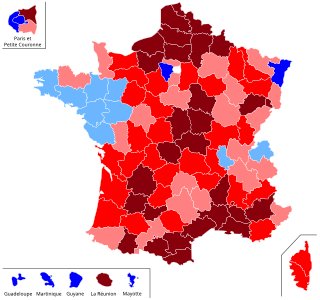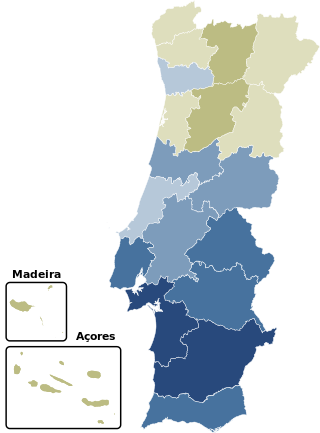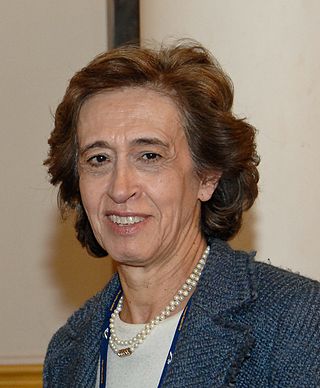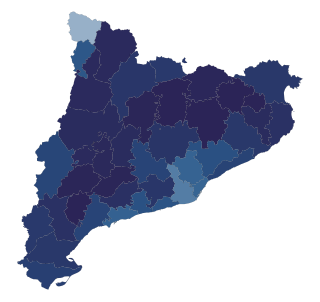Abortion in Ireland is regulated by the Health Act 2018. Abortion is permitted in Ireland during the first twelve weeks of pregnancy, and later in cases where the pregnant woman's life or health is at risk, or in the cases of a fatal foetal abnormality. Abortion services commenced on 1 January 2019, following its legalisation by the aforementioned Act, which became law on 20 December 2018. Previously, the 8th Constitutional Amendment had given the life of the unborn foetus the same value as that of its mother, but the 36th constitutional amendment, approved by referendum in May 2018, replaced this with a clause permitting the Oireachtas (parliament) to legislate for the termination of pregnancies.

The 2004 Canadian federal election was held on June 28, 2004, to elect members to the House of Commons of Canada of the 38th Parliament of Canada. The Liberal government of Prime Minister Paul Martin lost its majority but was able to continue in office as a minority government after the election. This was the first election contested by the newly amalgamated Conservative Party of Canada, after it was formed by the two right-of-centre parties, the Progressive Conservative Party and the Canadian Alliance.

The Good Friday Agreement referendum, 1998 was a referendum held in Northern Ireland over whether there was support for the Good Friday Agreement. The result was a majority (71.1%) in favour. A simultaneous referendum held in the Republic of Ireland produced an even larger majority (94.4%) in favour.

The CDS – People's Party is a conservative and Christian democratic political party in Portugal. It is characterized as being between the centre-right and right-wing of the political spectrum. In voting ballots, the party's name appears only as the People's Party, with the abbreviation CDS–PP unchanged.
Abortion in Brazil is a crime, with penalties of 1 to 3 years of imprisonment for the pregnant woman, and 1 to 4 years of imprisonment for the doctor or any other person who performs the abortion on someone else. In three specific situations in Brazil, induced abortion is not punishable by law: in cases of risk to woman's life; when the pregnancy is the result of rape; and if the fetus is anencephalic. In these cases, the Brazilian government provides the abortion procedure free of charge through the Sistema Único de Saúde. This does not mean that the law regards abortion in these cases as a right, but only that women who receive abortions under these circumstances, and the doctors, will not be punished. The punishment for a woman who performs an abortion on herself or consents to an abortion performed by another outside these legal exceptions is one to three years of detention. The base penalty for a third party that performs an illegal abortion with the consent of the patient, ranges from one to four years of detention, with the possibility of increase by a third if the woman comes to any physical harm, and can be doubled if she dies. Criminal penalties fixed at four years or less can be converted to non-incarceration punishments, such as community service and compulsory donation to charity.

Elections in Portugal are free, fair, and regularly held, in accordance with election law.

A referendum on the Treaty establishing a Constitution for Europe was held in Spain on Sunday, 20 February 2005. The question asked was "Do you approve of the Treaty establishing a Constitution for Europe?". The consultative referendum on ratification of the proposed Constitution for the European Union was approved by 81.8% of valid votes, although turnout was just 41.8%, the lowest since the end of the Franco era.

A consultative referendum on the Treaty establishing a Constitution for Europe was held in the Netherlands on 1 June 2005 to decide whether the government should ratify the proposed Constitution of the European Union. The result was a "No" vote.

A referendum on the Treaty establishing a Constitution for Europe was held in France on 29 May 2005 to decide whether the French government should ratify the proposed constitution of the European Union. The result was a victory for the "no" campaign, with 55% of voters rejecting the treaty on a turnout of 69%.

Constituent Assembly elections were carried out in Portugal on 25 April 1975, exactly one year after the Carnation Revolution. The election elected all 250 members of the Portuguese Constituent Assembly.

An abortion referendum took place in Portugal on 11 February 2007, to decide whether to legalise abortion up to ten weeks. The referendum was the fulfillment of an election pledge by the governing Socialist Party of Prime Minister José Sócrates.
Societal attitudes towards abortion have varied throughout different historical periods and cultures. One manner of assessing such attitudes in the modern era has been to conduct opinion polls to measure levels of public opinion on abortion.
Since 2021, abortion has no longer been a federal crime in Mexico. The criminal law in Mexico varies by state. On 7 September 2023, the Mexican Supreme Court unanimously ruled that penalising abortion is unconstitutional, setting a precedent across the whole country. Before 2019, abortion had been severely restricted outside of Mexico City, where it was legalized on-request in 2007. As of August 2023, abortion is available on request to any woman during the first twelve weeks of a pregnancy in Mexico City and the states of Oaxaca, Hidalgo, Veracruz, Coahuila, Colima, Baja California, Sinaloa, Guerrero, Baja California Sur, Quintana Roo, and Aguascalientes. However, even in states where abortion is legal, there continue to be women in pre-trial detention for murder due to spontaneous miscarriage.

The 2009 Portuguese legislative election was held on 27 September, to renew all 230 members of the Assembly of the Republic. The Socialist Party, led by incumbent Prime Minister José Sócrates, won the largest number of seats, but didn't repeat the overall majority they gained in 2005.

Abortion laws in Portugal were liberalized on April 10, 2007, allowing an elective abortion to be provided if a woman's pregnancy has not exceeded its tenth week. There is a three-day waiting period for abortions. President Aníbal Cavaco Silva ratified the law allowing abortion, recommending nevertheless that measures should be taken to ensure abortion is the last resort. Despite the liberalization of the laws, as of a 2011 survey, many doctors were refusing to perform abortions – which they are allowed to do under a conscientious objection clause. Abortions at later stages are allowed for specific reasons, such as risk to woman's health reasons, rape and other sexual crimes, or fetal malformation; with restrictions increasing gradually at 12, 16 and 24 weeks.

A referendum on creating administrative regions was held in Portugal on 8 November 1998. Two proposals were put to voters, the first on implementing the regions, and the second specifically asking whether voters approved of the new region for their area. The proposals were rejected by wide margins by voters.

A non-binding Catalan self-determination referendum, also known as the Citizen Participation Process on the Political Future of Catalonia, was held on Sunday, 9 November 2014, to gauge support on the political future of Catalonia. While also referred to as "Catalan independence referendum", the vote was rebranded as a "participation process" by the Government of Catalonia, after a "non-referendum popular consultation" on the same topic and for the same date had been suspended by the Constitutional Court of Spain.
A referendum on banning same-sex marriage was held in Slovakia on 7 February 2015. Critics claimed the referendum was pushed by religious and conservative organisations, aiming to block gay couples from gaining more rights.

The Thirty-sixth Amendment of the Constitution of Ireland is an amendment to the Constitution of Ireland which permits the Oireachtas to legislate for abortion. The constitution had previously prohibited abortion unless there was a serious risk to the life of the mother.
Abortion in Nevada is legal up to the 24th week of pregnancy, under the Nevada Revised Statutes chapter 442, section 250; and after 24 weeks if the pregnancy could be fatal for the pregnant woman. 62% of adults said in a poll by the Pew Research Center that abortion should be legal while 34% said it should by illegal in all or most cases. Legislation by 2007 required informed consent. Attempts were successfully made to pass abortion legislation in May 2019, being pushed through a largely Democratic controlled state legislature. The number of abortion clinics in Nevada has declined over the years, with 25 in 1982, seventeen in 1992 and thirteen in 2014. There were 8,132 legal abortions in 2014, and 7,116 in 2015. Due to the high level of support for abortion rights, continued access to abortion is supported by all parties, including the Republicans.














